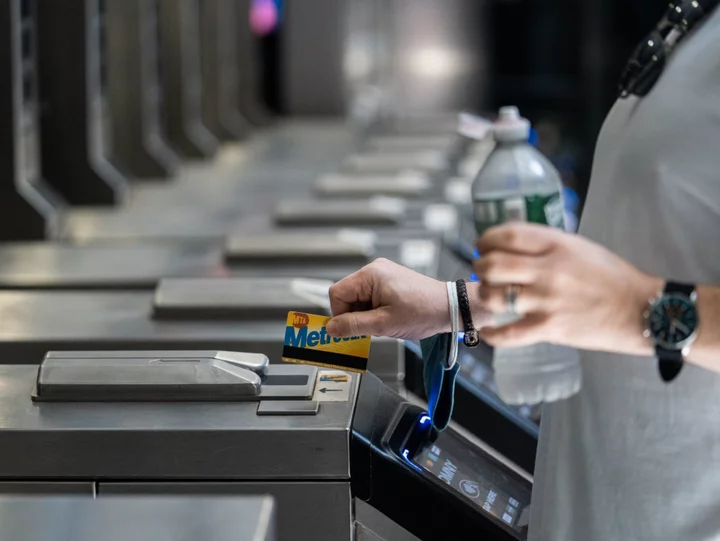New York’s Metropolitan Transportation Authority, the biggest mass-transit provider in the US, lost $690 million last year due to fare evasion, according to a new report.
The operator of New York City’s subways, buses and commuter rail lines as well as seven bridges and two vehicle tunnels is losing revenue as it works to restore ridership and farebox collections to pre-pandemic levels. Weekday subway ridership is about 70% of 2019 usage and the report estimates that 400,000 riders enter the subway system every day without paying.
“Fare evasion is at crisis levels across the transit system, and the problem is much bigger than everyone thinks,” Rosemonde Pierre-Louis, co-chair of a special panel that authored the report and executive director of the McSilver Institute for Poverty Policy and Research at New York University, told reporters Wednesday at Grand Central Terminal where the MTA released the report. “Turning the tide on these sobering numbers is mission critical.”
About 13.5% of subway riders failed to pay in the last quarter of 2022, up from 3% to 6% before the pandemic, according to the report.
Of the estimated $690 million annual loss, buses accounted for the largest share with $315 million, subway evasion cost $285 million, about $46 million was due to drivers avoiding tolls and commuter rail evasion totaled $44 million, the report said.
The panel’s goal is to cut fare and toll evasion losses by half within three years across the MTA’s system. It’s not just mass-transit, the MTA is focusing on going after vehicles with obscured or fake license plates.
“In the last six months, we have impounded dozens and dozens of super-luxury automobiles owned by people who owe New Yorkers in excess of $50,000 or $100,000,” Janno Lieber, the MTA’s chief executive officer, told reporters. “We’re not going to stop doing that because that is an outrage to ride around in a Bugatti and a Mercedes and stiff New Yorkers who are just trying to get to school or to work on the transit system.”
To combat evasion, the panel said the state-run transit agency should update its subway infrastructure with taller emergency exits and gateways with plexiglass doors that prohibit riders from jumping subway turnstiles.
Enforcement should be a “laddering up” strategy, according to the panel. First-time offenders would receive a warning while a second evasion would bring a $100 fine where the non-paying rider would get back half that amount in a pre-loaded OMNY card to access transit. Additional offenses would bring higher fines.
To help lower-income families, the panel is urging New York City to expand the FairFares program, which offers qualifying residents a 50% subsidy on subways and buses. Another half a million residents could access the program if the city lifted the eligibility cap to 200% of the federal poverty level from 100%, according to the report.
(Corrects day of announcement in third paragraph.)

